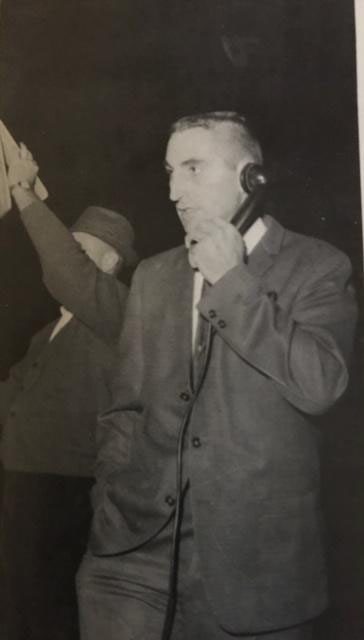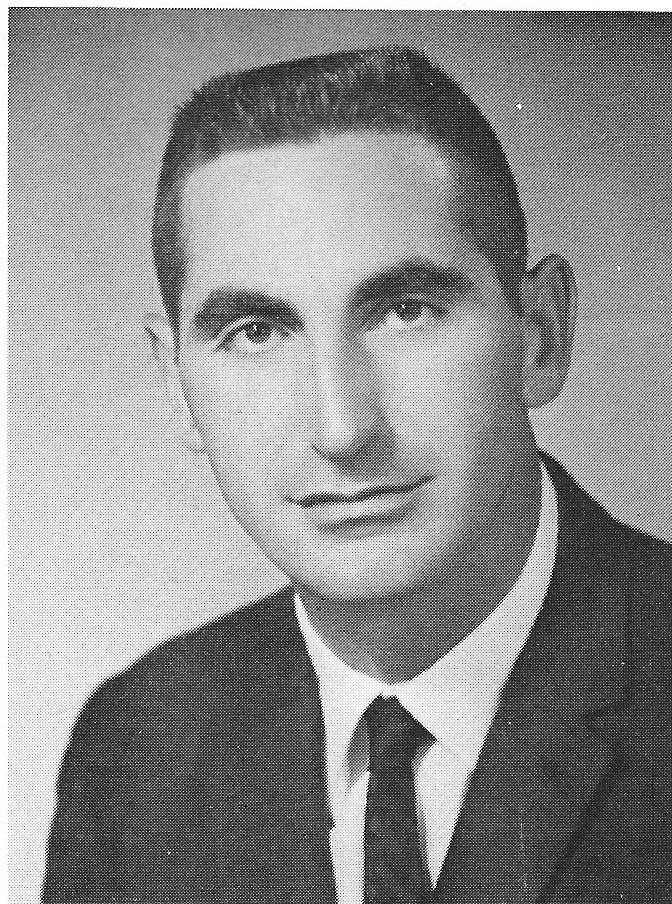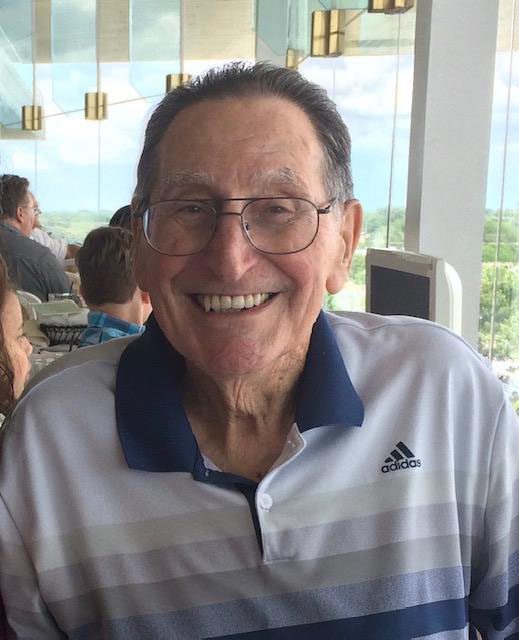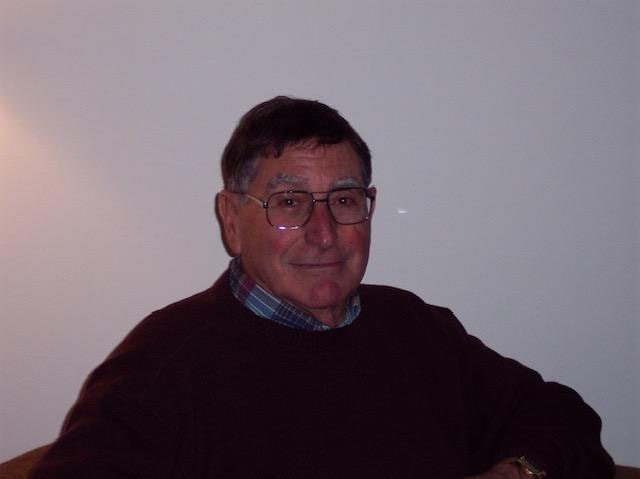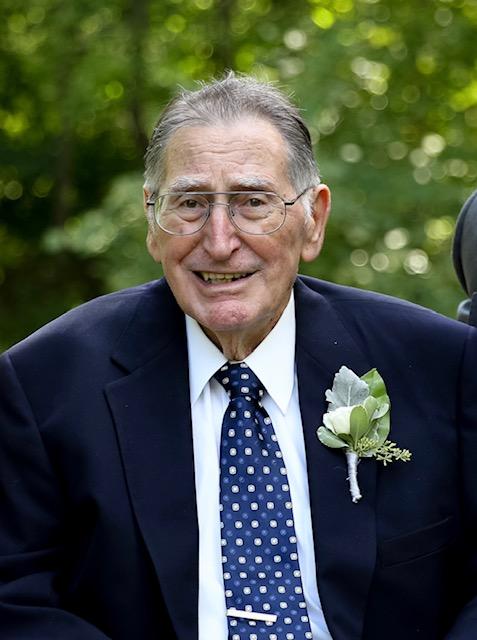Editor’s Note: The Mahomet-Seymour Hall of Fame Class of 2020 has been announced. Over the next four publishing days, the Mahomet Daily will share the stories of the inductees: Fred Kroner, Jason Seaman, Janet Watkins and Leo Vitali. The inductees will be enshrined at the homecoming football game on Friday, Sept. 18 against Effingham.
*This article was first published in 2020. Vitali was recognized at the 2021 Hall of Fame Induction at Friday’s Homecoming Football game.
By FRED KRONER
fred@mahometnews.com
Athletic competition at Mahomet-Seymour High School – and its predecessor, Mahomet High – can be traced back to 1910.
If that time period is broken into two evenly distributed eras, one former coach clearly stands atop all others in accomplishments and achievements for the first 55 years.
Leo Vitali, who arrived in Mahomet as a 27-year-old in 1957 after three years as an assistant coach at Decatur St. Teresa, set the standard in three sports that others have tried – unsuccessfully – to duplicate.
He took over a football program that had only switched to the 11-man game two years before. Vitali never had a losing season in his eight-year tenure with football and led the school to a state-record 33 consecutive football wins.
The M-S graduating class of 1963 never lost a varsity football game while in high school. Overall at M-S, Vitali’s football winning percentage was 87.9 percent.
Though he coached prior to the implementation of the IHSA state playoffs, the remarkable nature of his success is evident more than a half-century after Vitali left M-S for St. Charles.
What Vitali accomplished in four consecutive seasons – unbeaten regular-season records – has occurred just one more time in the past 55 years. The only Bulldog football team to win all of its regular-season games since the Vitali Era was complete is the 2004 squad.
Football alone would have been enough to warrant Vitali a spot in the Mahomet-Seymour Education Foundation Hall of Fame – which will honor him in September when he is part of the fourth class to gain induction.
However, prior to the 1959-60 basketball season, Vitali was asked to add head coaching duties in that sport to a to-do list that already included teaching history and social studies, physical education and driver’s education as well as serving as athletic director.
His cumulative record for six years in basketball was 116-37, including a four-year stretch ending in 1963 that produced 87 wins, a total that has never been surpassed in school history, though, the M-S Class of 2018 matched that win total for its four varsity seasons.
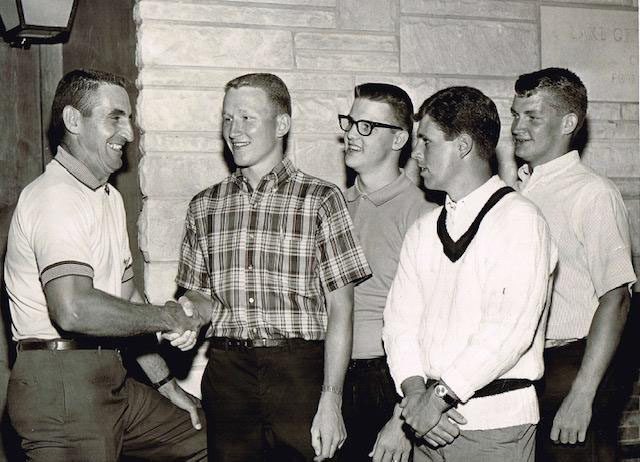
The results in the athletic endeavors under Vitali also include a stint as the track coach during a time when numerous school records fell, but the statistics tell only a portion of the Leo Vitali Story.
James Hixson, a 1962 M-S graduate, played football and basketball under Vitali.
“I distinctly remember my first encounter with him occurred while trying out for freshman basketball,” Hixson said. “As he drifted through all the aspiring candidates, he stopped and asked me if I knew how to shoot a jump shot.
“I answered ‘No’ and he retorted, ‘You better learn real fast or you will last as long as a snowball in …’ You know the rest.
“Many more examples could be cited not only in my own case, but by so many athletes that the end result remains the same. Mr. Leo Vitali was truly an inspiring man, which easily explains why he was such a successful coach.”
Vitali was a three-sport athlete at Taylorville High School and was a running back and track athlete while at Decatur’s Millikin University.
“I have always had the greatest amount of respect for him,” Hixson said. “That word – respect – exemplifies the very first attribute that I would associate with this man.
“After all these years have passed, I have to smile over the intimidating persona that Mr. Vitali wanted to impress upon the younger people that he was associated with.
“Actually, he only wanted all the younger people to be and become the absolute best that each student could possibly be.”
He didn’t just care about those students while they were participating in a sport.
“I owe my nearly 44-year career in the newspaper business in part to Leo Vitali,” said Bill Wills, a member of the M-S Class of 1961.
“He and business teacher Ruth Herriott provided references that led The Pantagraph in Bloomington to hire me as an ‘office boy’ even though I lacked the traditional journalism degree.
“An editor sent to M-S to check out my resume said when he returned, he told the managing editor: ‘You’d better hire this guy right now. I have never heard such glowing reports.’”
Wills said he wasn’t surprised by the recommendation.
“It was typical Leo: Give him everything you have on the field, court or track. He noticed,” Wills said. “He goaded you to do better, but compliments were rare.
“I learned how much he cared when he visited while I was hospitalized with a stomach problem my freshman year and then laid up three years later with mono.”
Wills said some of Vitali’s methods were unorthodox.
“I laugh today about some of the ways he prodded me,” Wills said, “like the time I had three early fouls in a basketball game and he said: ‘Do you want me to buy you a ticket to this game so you can sit with your friends?’
“He was a rarity among football coaches. In practice, the left side of the line went against the right side. If you wanted to be the best, you practiced against the best, he said.
“I played against only one other (opposing) lineman who was as good as my own teammates. And that player was an all-stater my freshman year.
“Yes, Leo was tough as nails and knew how to draw the best from you. But he was also soft of heart and truly cared about his students/players – and their futures.”
Jack Dollahon was part of Vitali’s first Bulldog football team. He was a senior who graduated in 1958.
“He was so much more than a football coach,” Dollahon said. “He was a disciplinarian who made you understand that winning is an attitude.
“Some individuals have that knack to make you a winner. He out-prepared the other team. We definitely were in better condition.”
Phil Knell, a charter member of the M-S Education Foundation Hall of Fame, can vouch for the training that was involved under Vitali.
“We were well-conditioned,” said Knell, a 1963 graduate. “We were nearly always stronger than the other team in the fourth quarter.”
Speaking to the Mahomet Daily in 2016, Vitali said the school’s success was a self-perpetuating cycle.
“We had good athletes and worked hard,” he said. “The more they won, the more they wanted to win. They were very dedicated.”
Vitali had a penchant for developing quality athletes at the quarterback position.
His first three years at M-S, the Bulldogs’ quarterback was Jerry Maley, who went on to play football at Illinois State University. The next three years, the M-S quarterback was all-stater Knell, who became a fixture in the defensive backfield at the University of Illinois.
At St. Charles, Vitali tutored his son, Mark, a quarterback who went on to letter for three years at Purdue and was a 10th-round draft choice by the Kansas City Chiefs, and later he coached Randy Wright, who not only played at Wisconsin, but also spent five years in the NFL, where he started 32 games for Green Bay.
Dollahon was the M-S quarterback as a junior, but gave way to Maley the following year.
“He (Vitali) came to me and said, ‘You’ll be gone in one year and I’ll have him for three years,’” Dollahon recalled. “They saw the potential in him.”
Dollahon was not distraught.
“I understood, and I was more comfortable as a running back,” he said.
Vitali stood about 6-foot-2 and his presence was felt in any room he entered.
Dollahon recalled a study hall he was in where Vitali was the monitor. One of the girls in the room, the former Alice Phillippe, would later become Dollahon’s wife.
“Vitali didn’t want anyone moving around,” Jack Dollahon recalled. “She stood up, and he said, ‘Sit down.’
“I said, ‘She helps in the lunch room at noon,’ and he said, ‘Go on.’ He wasn’t mean, but he was intimidating.”
Vitali was enshrined in the Illinois Football Coaches Association Hall of Fame in 1983, in the St. Charles Hall of Fame in 1998 and the Taylorville High School Hall of Fame in 2011.
At St. Charles, Vitali coached football for 13 years and then – after a one-year hiatus – returned in 1980 for nine years to coach the golf program and developed teams that won state championships in 1984 and 1987.
Kenneth Brumm was the M-S superintendent in 1963 and in a newspaper interview that year, isolated the ability to teach as one of Vitali’s strengths.
“He was a technician in athletics,” Brumm said.
Vitali, who had five children, died in 2017, at the age of 87. He is gone, but his legacy will live on infinitely.
M-S Education Foundation Hall of Fame
2020 Inductees
NAME GRAD YR.
Fred Kroner 1973
Jason Seaman 2007
Leo Vitali N-A
Janet Watkins N-A
